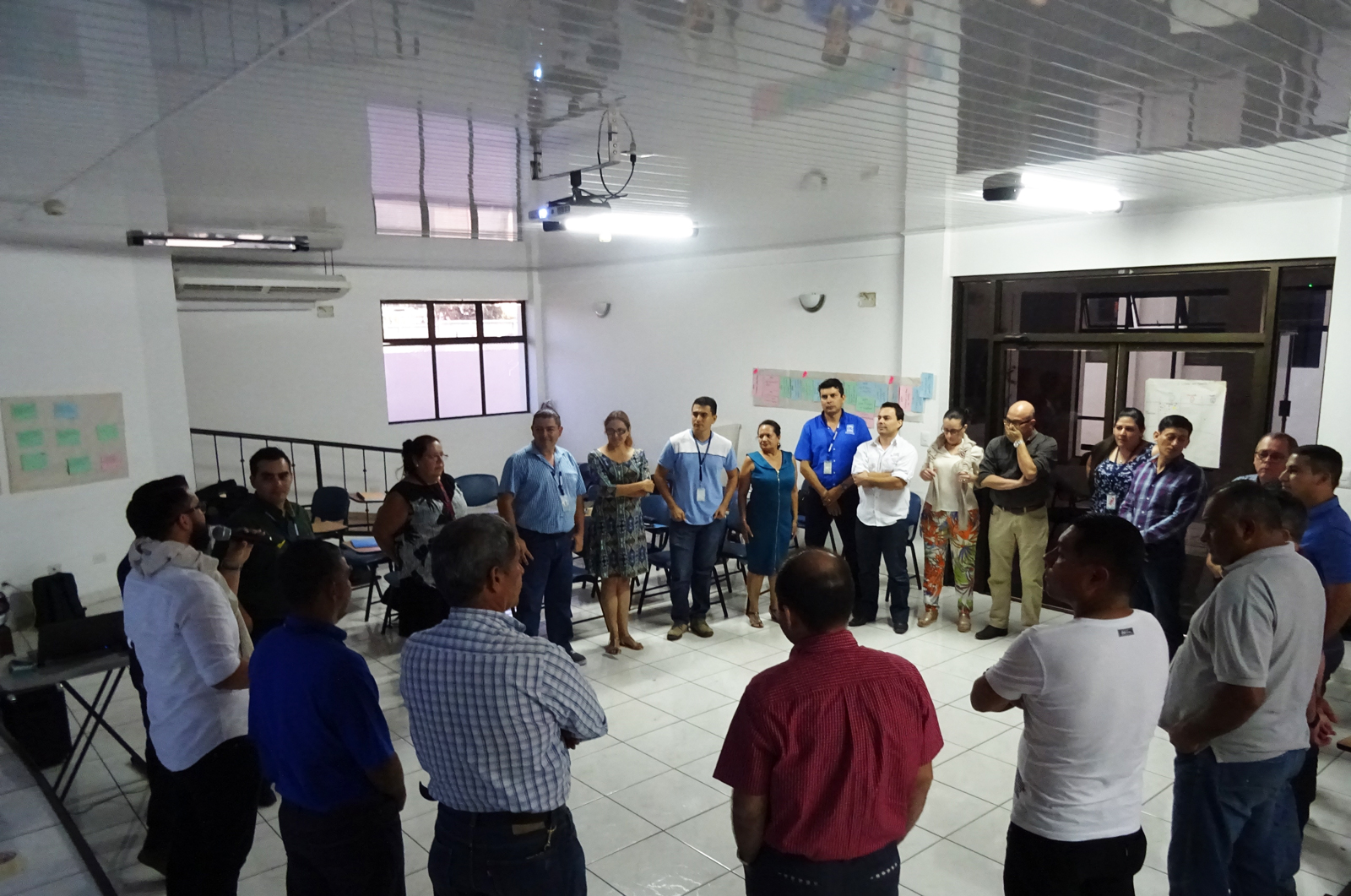FAO contributes to implement a sustainable development approach to benefit the fisheries sector
- The ecosystem approach seeks to balance ecological and human well-being through good governance.
March 15, San Jose, Costa Rica. Technicians from the Costa Rican Institute of Fisheries and Aquaculture (INCOPESCA) learn about the Ecosystem Approach to Fisheries Management (EAFM), with the purpose of developing a plan for the integral management of fisheries, with the support of the Sustainable Management of Bycatch in Latin America and Caribbean Trawl Fisheries (REBYC-II LAC) of the Food and Agriculture Organization of the United Nations (FAO).
 |
| © FAO Costa Rica |
“The Ecosystem approach provides us with the necessary elements to be able to consider the technical, scientific criteria of a biological, environmental and socio-economic nature. The variables that interfere in the development of fisheries are not few, so we have to make an integration of all these, to guide the activity towards a sustainable use of resources and towards a local development of the communities that are dedicated to the activity”, commented Gustavo Meneses, Executive President of INCOPESCA.
The Ecosystem Approach to Fisheries Management promotes sustainable development in fisheries by seeking a balance between ecological well-being and human well-being through good governance to comply with and enforce the law.
“Costa Rica has been open to external support from FAO and other experts to improve fisheries. Besides that, the country has carried out a process of dialogue among fishermen, the government, civil society, non-governmental organizations and university academics, through a good model of how processes should be carried out in other parts of the world, and this has been the main objective and achievement of this process”, commented Carlos Fuentevilla, the Regional Coordinator of the REBYC-II LAC project.
The EAFM allows the recognition of large and small scale problems to provide adequate solutions, increase the political support, integrate all stakeholders and improve access to financial resources for fishing.
Moreover, Costa Rica adopted the Code of Conduct for Responsible Fisheries of FAO, through the regulation of the Fisheries and Aquaculture Law No. 8436, as an instrument of responsible practices to ensure the conservation, management and effective development of the living aquatic resources.
The Code of Conduct for Responsible Fisheries of FAO, is based on the EAFM principles, with the objective to maintain the well-being of fisheries resources for the present and future generations, prevent overfishing, protect the rights of fishers dedicated to small-scale fishing and promote the contribution of fisheries and food and nutritional security.
According to FAO, the application of the EAFM is a strategy for integrated management of land, water and living resources that promotes conservation and sustainable use in an equitable manner.
REBYC-II LAC Project promotes the exchange of good practices in the region
Artisanal fishing is important in countries involved in the project such as Brazil, Colombia, Costa Rica, Mexico, Suriname, and Trinidad and Tobago.
“In the case of Suriname we have a very valuable certified fishery. From this case we obtained many lessons to see how it could be applied in other countries as well. Additionally, we conducted a socioeconomic assessment of the impact of this certification on the fishing community and on the income of the fishing communities,” highlighted Daniela Kalikoski, senior technical officer of the REBYC-II LAC project.
Currently, the project contributes to establish alternatives that guide towards the reduction of discards in shrimp trawl fishing, by means of technological adjustments that allow the reduction of the impact of this activity on marine ecosystems.
Octavio Ramírez Mixter, the Resident Coordinator of FAO in the country, pointed out the importance of exchanging information and experiences that contribute to put in practice options of responsible and sustainable fishing techniques tailored to the actors involved.
The project components promote the review of appropriate legal and institutional frameworks, responsible fishing practices, research on the impact of bycatch on food and nutrition security and on livelihoods. In addition, it fosters greater cooperation and exchange of experiences and good practices among the countries in which the REBYC-II LAC is executed.
